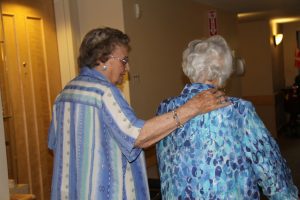In May of 2017, the World Health Organization (WHO) unanimously adopted a global plan on dementia at the 70th session of the World Health Assembly in Geneva. The plan follows ten years of advocacy by ADI for a global response to the growing impact of dementia worldwide.
The current World Alzheimer Report landmark report calls for a radical change in the way healthcare is delivered to people living with dementia, with a re-balancing toward what is called the “non-specialist primary”.
What is a non-specialist primary? Dementia healthcare systems tend to be provided by specialists (geriatricians, psychiatrists, mental health specialists) – it is unlikely that full coverage can be attained or afforded using this current specialist care model.
Non-specialist primaries are those who receive training and support to deliver care. This can include residents, family, volunteers and more.
Why does this matter?
- There is an escalating struggle for healthcare systems to provide adequate services that are responsive to the needs of people with dementia and their families.
- Attention needs to be on ‘task-shifting and task-sharing’ from health professionals who provide training and support to those with so called ‘lower-skills’.
- Residents providing peer support to one another, is a fantastic example of
 a non-specialist primary. Research is demonstrating that peer support groups as a model of care, are a highly efficient and cost-effective way to meet the emotional and social needs of those living with dementia and their families. Residents helping residents.
a non-specialist primary. Research is demonstrating that peer support groups as a model of care, are a highly efficient and cost-effective way to meet the emotional and social needs of those living with dementia and their families. Residents helping residents. - This is being accomplished is through an increase of training and supporting volunteers and residents themselves to deliver peer support groups throughout the senior living sector, especially and including memory care.
The World Alzheimer landmark report is a re-balancing move and brings a ray of hope. Non-specialist primaries may just be how we will better be able to meet the increasing needs for those living with dementia.
